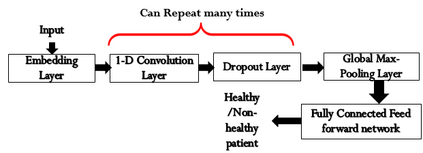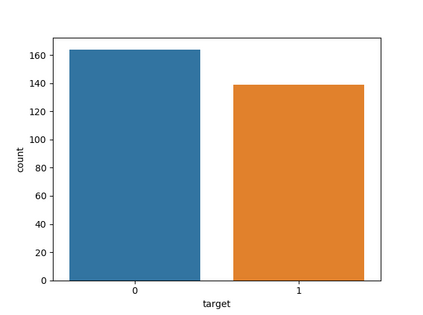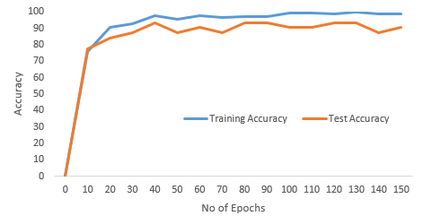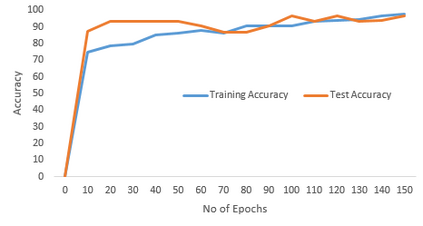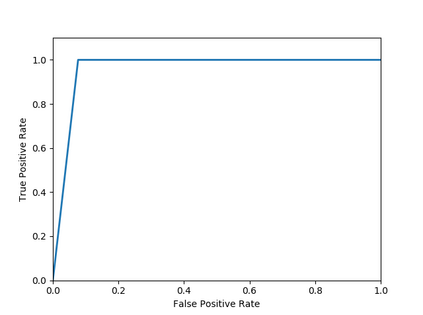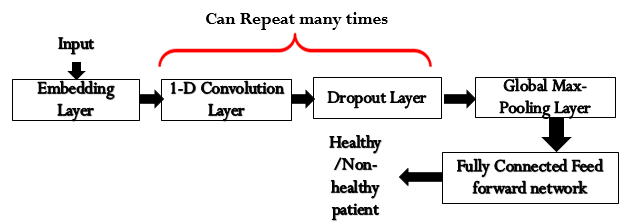Healthcare is one of the most important aspects of human life. Heart disease is known to be one of the deadliest diseases which is hampering the lives of many people around the world. Heart disease must be detected early so the loss of lives can be prevented. The availability of large-scale data for medical diagnosis has helped developed complex machine learning and deep learning-based models for automated early diagnosis of heart diseases. The classical approaches have been limited in terms of not generalizing well to new data which have not been seen in the training set. This is indicated by a large gap in training and test accuracies. This paper proposes a novel deep learning architecture using a 1D convolutional neural network for classification between healthy and non-healthy persons to overcome the limitations of classical approaches. Various clinical parameters are used for assessing the risk profile in the patients which helps in early diagnosis. Various techniques are used to avoid overfitting in the proposed network. The proposed network achieves over 97% training accuracy and 96% test accuracy on the dataset. The accuracy of the model is compared in detail with other classification algorithms using various performance parameters which proves the effectiveness of the proposed architecture.
翻译:医疗诊断的大规模数据有助于开发复杂的机器学习和深入学习模型,用于对心脏病进行早期自动诊断; 传统方法从不普及到培训组没有看到的新数据方面受到限制; 心病是阻碍全世界许多人生活的致命疾病之一; 心病是已知的最致命疾病之一,它阻碍着全世界许多人的生活; 必须及早发现心脏病,以便预防生命损失; 提供大规模医疗诊断数据有助于开发复杂的机器学习和深入学习模型,用于对心脏病进行早期诊断; 传统方法在不普及到培训组没有看到的新数据方面受到限制。 这一点表现在培训和测试精度方面的巨大差距上。 本文建议使用1D进化神经网络来为健康与非健康的人进行分类,以克服传统方法的局限性,建立一个新的深层次学习结构。 使用各种临床参数来评估病人的风险状况,帮助早期诊断。 使用各种技术避免在拟议网络中过度适应。 提议的网络在培训精度和测试数据集方面达到97%以上的测试精度。 模型的精确性与其他分类算法进行了详细比较,使用各种性能参数来证明拟议结构的有效性。

